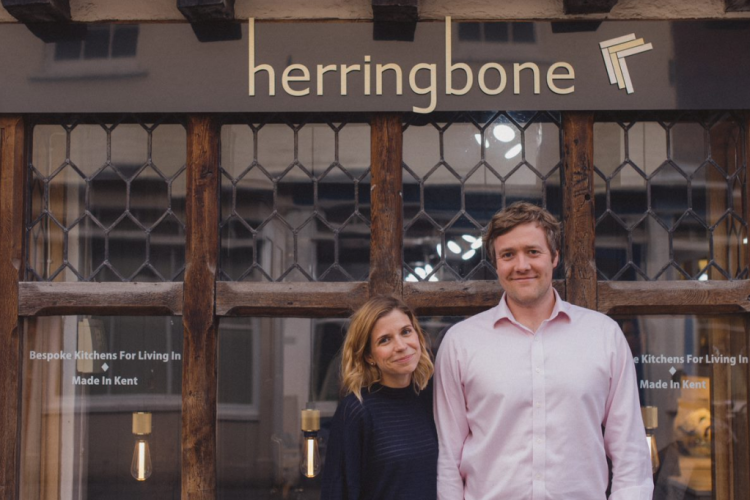Last month we reported how Canterbury-based Herringbone had become the first UK kitchen company to withdraw high-silica quartz from its product offering in the wake of growing health concerns.
Cutting and grinding engineered stone like quartz produces dust that can cause lung disease. Australia is banning the sale of high-silica engineered stone due to health concerns.
The USA is also debating the topic after a report from the University of California last year, Deadly Dust: Engineered Stone Is Making California Workers Sick, described the state as the epicentre of silicosis.
Having decided to stop selling quartz worktops, Herringbone owners Elly Simmons and William Durrant have continued their research into the risks by meeting stonemasons and speaking to doctors Jane Fazio and Carl Reynolds about their research into lung disease, silicosis and treatment of silicosis patients. The doctors talk of a “global outbreak” of engineered stone silicosis.
Keen to be part of the solution rather than part of the problem, Simmons and Durrant have now set up a petition to get the UK parliament to impose a ban on these products. The petition is live until 24th September 2024.
Silica is naturally occurring in stone such as granite, porcelain and marble at between 5% and 40%. However, in engineered quartz it can be as high as 97%.

High-silica quartz is one of the dominant products in the UK market for kitchen worktops. There are no risks to residents once the product is installed; the risk comes when it is produced and cut by stonemasons or cut on-site where dust is created.
William Durrant, co-owner of Herringbone said “We are pleased to have started a conversation in our industry and want to thank everyone for their support so far. We are aware that regulations are in place, however we see no place for high-silica engineered quartz when so many other alternatives are readily available. By taking the petition to parliament we hope that we can make further impact and help make all stonemasons, fitters and people exposed to high-silica dust particles safe.”
Dr Carl Reynolds, consultant in respiratory and acute medicine at Imperial College Healthcare NHS Trust, added: “Silicosis is a devastating, incurable, and entirely preventable disease. It kills and causes serious disability in people of working age. The global artificial stone silicosis outbreak is a tragedy. I can see no justification for artificial high-silica stone use in the UK and fully support a ban.”
However, as we have also previously reported, the British Occupational Hygiene Society says that there is no reason for Britain to follow Australia’s lead in banning engineered stone worktops. It says that the risk of silicosis from working with quartz and other engineered stones can be managed out.
Lord Younger, a junior minister in the Department for Work & Pensions, told parliament in January that a UK ban was not being considered. He said: “The HSE is not currently considering restricting the use of engineered stone. The Control of Substances Hazardous to Health Regulations already require employers to put in place measures to prevent workers being exposed to respirable crystalline silica. This includes adequate controls ensuring compliance with the workplace exposure limit and health surveillance identifying potential ill health. HSE keeps requirements for reporting occupational diseases under review and is not currently making silicosis reportable.”
Herringbone's petition, Ban High-Silica Engineered Stone Worktops, is at petition.parliament.uk/petitions/658335
Got a story? Email news@theconstructionindex.co.uk



